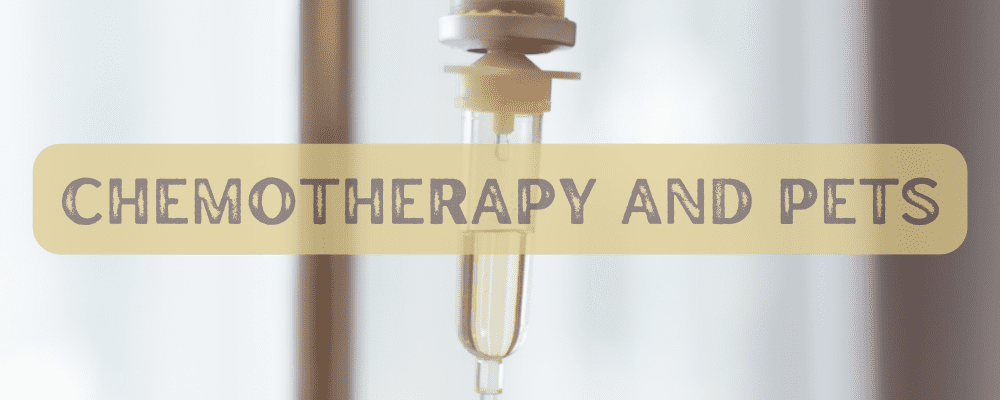A diagnosis of cancer in your pet is frightening and we understand that when presented with such unexpected news you might have questions on how to move forward with this diagnosis.
The decisions surrounding the treatment of your pet for cancer can be very challenging. Your veterinarian is trained to help you make the best decisions and support you and your pet through a course of treatment. Response to treatment depends on the type of cancer that your pet has and what treatments are available for it. As there are many forms of cancer there is no general rule on how well an individual patient will respond to therapy but for some cancers, treatment can be very successful.
At Animal Medical Clinic, we offer treatments for many forms of cancer. Many cancers can be cured with surgery, but for some types, chemotherapy is the best option. In veterinary medicine our first objective is prolonging quality time, as opposed to guaranteeing a cure. This means we cause fewer side effects from treatment. Animals tolerate chemotherapy well without hair loss, vomiting and other adverse effects.
Chemotherapy is the treatment of disease by using chemical agents that are toxic to cancer cells. These agents work by killing actively dividing cells, which by nature are cancer cells. The susceptibility of the cells to treatment depends on the type of cancer itself. Chemotherapy is a scary word, but pets tolerate it pretty well.
Chemotherapy is often used in conjunction with procedures such as surgery and/or radiation therapy, but in some cases it may be the only form of treatment needed. Our doctors can manage many types of chemotherapy. We also have a local veterinary oncologist who can handle the more complicated cases.
How is Chemotherapy Given?
Chemotherapy is most often given by injection, but in some instances, it may be given in the form of pills that can be swallowed. The injections are performed as either quick injections into the patient’s vein (intravenous; IV) or muscle (intramuscular; IM), or as a slow IV drip.
How Successful is Treatment?
The primary goal of treatment is to improve and extend each patient’s quality of life for as long as possible. The success rates of chemotherapy alone or chemotherapy combined with other procedures vary depending on the type of cancer.
How Long are Pets Typically Given Chemotherapy?
The number of treatments given depends on the type of cancer, the chemotherapy protocol and the pet’s responsiveness to treatment. There are various protocols available, and the success and prognosis associated with each protocol differ. In a few cases, long-term maintenance chemotherapy may be recommended.
Do Pets Require Hospitalization?
Most chemotherapy is administered on an out-patient basis. Some pets will need to spend several hours during the day at our hospital but will not need to stay overnight.
How Much Does Chemotherapy Cost?
Cancer treatment can be expensive. Pets will be receiving care from highly skilled staff. In some cases they will benefit from specialists with years of training and experience in oncology. The cost of treatment depends on many variables including the cancer type, chemotherapy protocol, patient size, treatment duration, lab work and any necessary hospitalization or additional procedures. There also may be a need to amend the chemotherapy protocol depending on the pet’s response to treatment. A written estimate will be provided for all of the treatments and procedures.
How Does Chemotherapy Affect a Cat or Dog’s Routine Care?
A pet’s daily routine should be as normal and uninterrupted as possible. Pet owners should continue giving their pet heartworm, flea and tick preventives. Because chemotherapy may affect the immune system, annual vaccinations need to be discussed with your veterinarian prior to administration.
Side Effects
Almost all chemotherapy agents have the potential to induce side effects, but they would not be used if their potential benefits did not outweigh the possible risks. Unlike people receiving chemotherapy, the vast majority (80-90%) of dogs and cats have minimal to no side effects. However, a small number of patients may have moderate to severe side effects. Rarely is a side effect life-threatening to the patient.
Chemotherapy side effects occur as a result of the toxic effects that chemotherapy agents have on the normal cells in the body. The majority of the normal cells that may be affected are found in the lining of the intestines (GI tract) and in the bone marrow. There may be other specific toxicities associated with various chemotherapy agents on particular organs, and these will be discussed when indicated.
The common side effects associated with the GI tract include vomiting, diarrhea and nausea/loss of appetite. The common side effects associated with the bone marrow include a decrease in the white cell count leading to immunosuppression (a compromised ability of the body to fight infection), loss of appetite and lethargy. It is rare to affect other bone marrow-derived cells such as the platelets and red blood cells.
Many side effects, such as those associated with the GI tract, are not immediate and become evident three to five days after chemotherapy. In the majority of cases, the side effects are limited to no more than 24 to 48 hours. The white cell count is typically at its lowest point 7 to 10 days after treatment, and the cells naturally rebound quickly. If needed, medications can be administered to counteract these side effects. If side effects are severe, then we will consider a change in treatment plan so as to maintain good quality of life.
